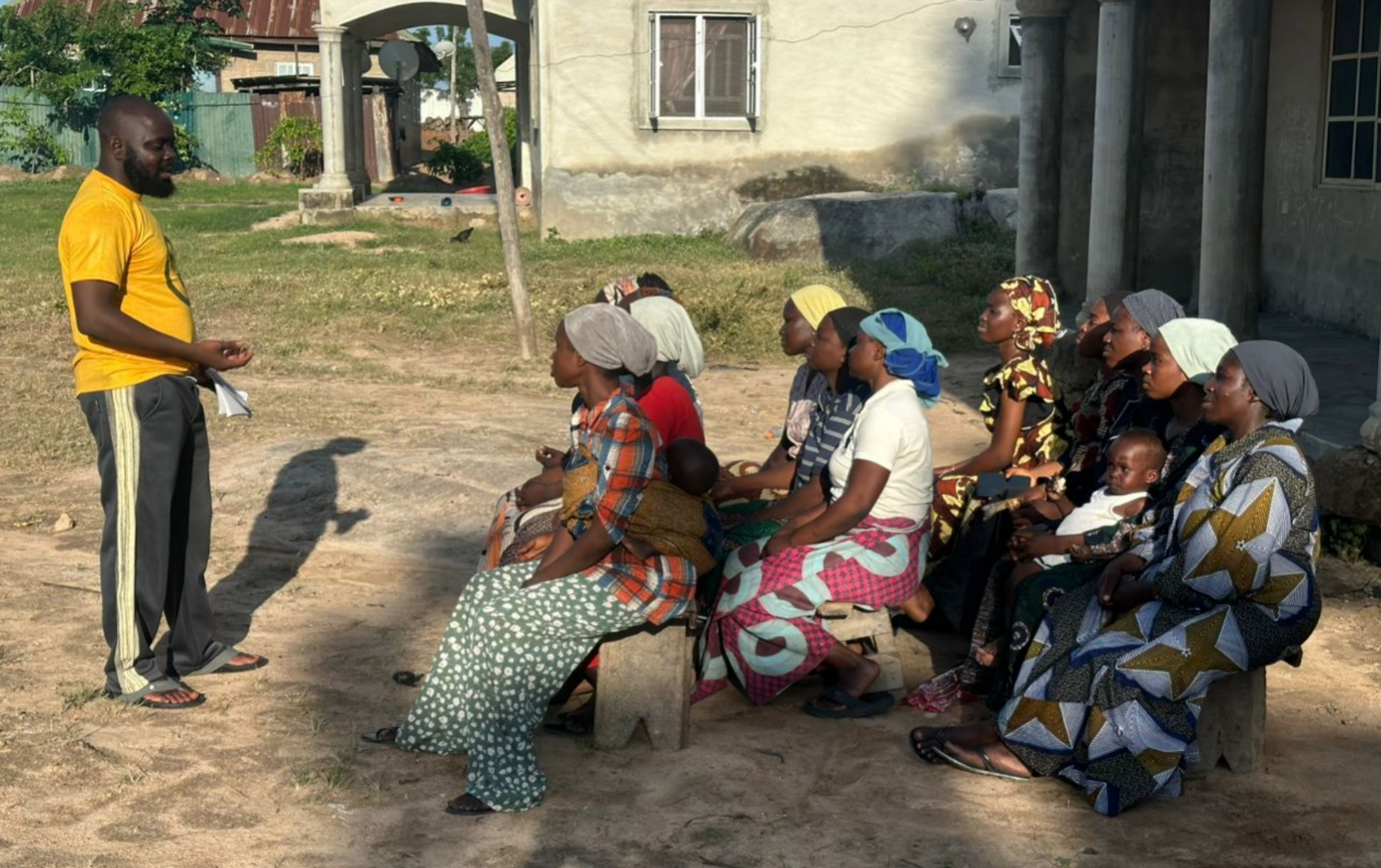Inspection Report of Visit to Daloa Humanist Women Collectives
by Saliu Olumide Africa Humanist Director
During my recent visit to Daloa in Ivory Coast, I had the privilege of meeting with the Daloa Humanist Women Collectives, a group of dedicated women who are united by their shared belief in humanist values. The group is made up of women both young and old, representing different generations but bonded by the ideals of secular humanism, solidarity, and the pursuit of a better life through mutual aid. The warmth of their welcome and the eagerness with which they engaged me was both humbling and inspiring.
At the meeting, each member of the collective introduced herself and shared a personal story of how she came to embrace humanism, as well as how she eventually became part of the collective. This was a moment of great reflection, as it revealed not only the personal journeys of the women but also the impact that humanism has had on their daily lives. For instance, Kousso Minata explained that she was drawn to humanism after becoming disillusioned with rigid religious dogma and wanted a worldview that celebrated reason and compassion. Clarisse Kouadio, who is one of the few with a fair command of English, narrated that her discovery of the collective gave her a sense of belonging and courage to openly live out her humanist convictions. Fatoumata Soro and Aminata Traoré both spoke of how they were introduced through friends already in the group, describing the comfort of finding a safe space for women to question, learn, and share freely. Among the elders of the collective, Brigitte Guei and Josiane Yao shared moving accounts of how humanism gave them a renewed perspective on raising children to think critically and independently. Younger members like Mariam Koffi, Nadège Coulibaly, Prisca Guessan, and Zeynab Diomandé emphasized how humanism resonates with their day-to-day experiences of striving for education, equality, and empowerment in a society that often restricts women.
From these introductions, it was evident that all the members possessed a working knowledge of humanism and were able to articulate the concepts that have meaning for them, especially those that directly affect their daily lives. They spoke clearly about values such as compassion, equality, rational thinking, and living without fear of dogma, showing that humanism has been internalized not just as an abstract philosophy but as a practical guide to navigating life’s challenges. This knowledge has been nurtured collectively, and the group sees itself as a family where members learn from one another.
As part of the inspection, I was shown the food hydrator that HuMAN had previously provided to the collective. The equipment was in good working condition, and every member testified that it is communally shared and used among them. They explained how the hydrator has helped them preserve food more efficiently, reducing waste and adding value to their small-scale farming and trading efforts. The fact that the machine is used collectively speaks to the unity and fairness that characterize the group, as no one is excluded from its benefits.
The visit was also highly interactive, as the women had prepared many questions about the broader humanist movement and its trends around the world. I took time to answer as many questions as possible, sharing with them updates on how humanism continues to grow as a global voice for reason, secularism, and human rights. In our discussions, I emphasized how they could begin to develop humanism within their small community in Daloa, gradually influencing the wider society and ultimately contributing to the recognition of humanism in Ivory Coast. I encouraged them to see themselves as pioneers who, through their daily actions and solidarity, could shape a national humanist identity.
By the end of the meeting, I was left deeply impressed by the determination, clarity, and vision of the Daloa Humanist Women Collectives. Despite facing challenges of language barriers, limited resources, and a cultural environment that often resists change, they are firmly grounded in their humanist beliefs and eager to grow. With further support in areas such as training, community projects, and translation assistance, this group has the potential to become a strong force for humanism in Ivory Coast. My impression remains that they are not only committed to living out humanist principles but are also prepared to be leaders in spreading those principles to others around them.

